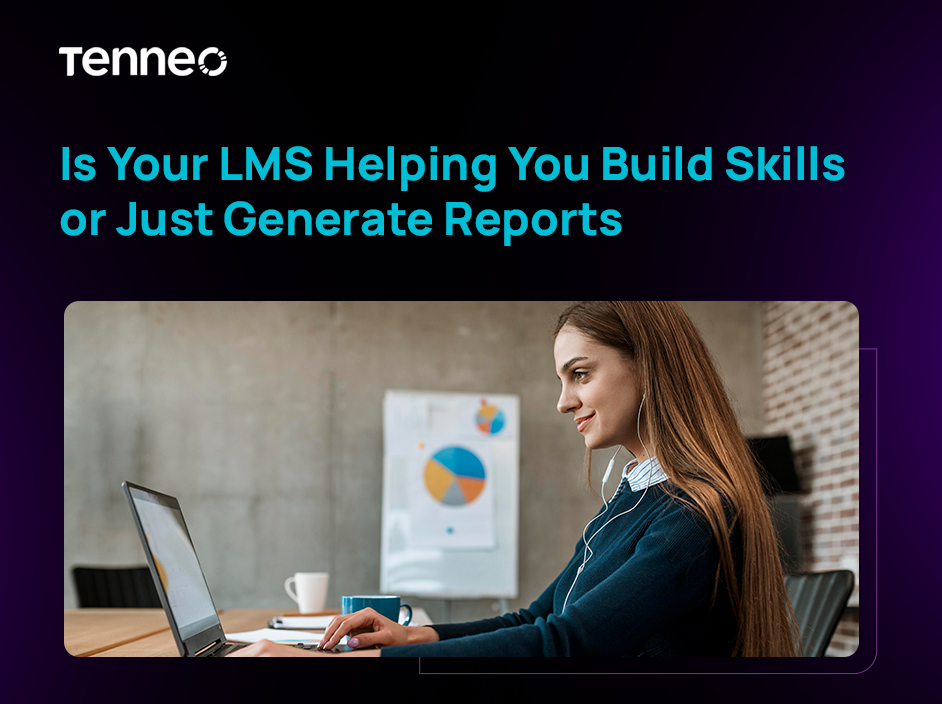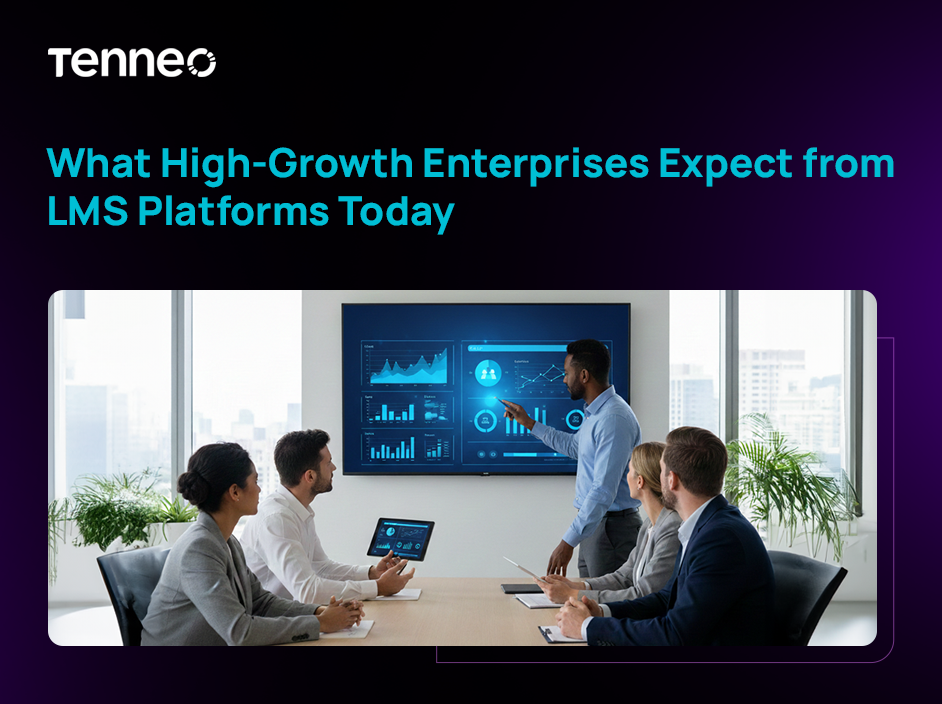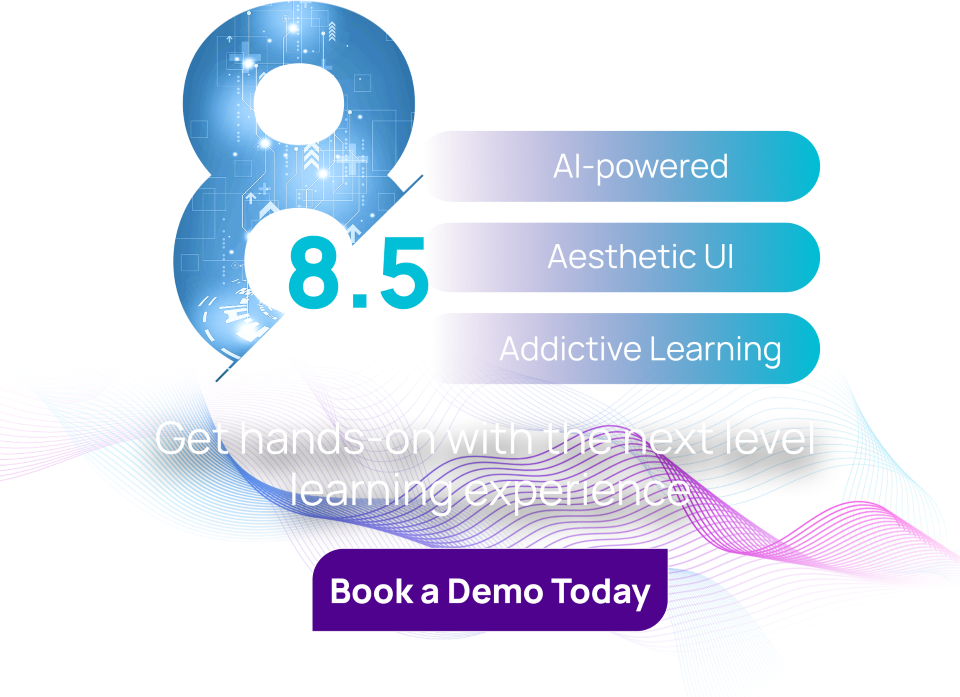
Agentic AI Is the New MVP: From Learning Engagement to Business Growth
July 17, 2025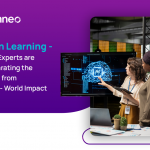
AI in Learning — Our Experts Are Separating the Buzz from Real-World Impact
October 22, 2025
Agentic AI Is the New MVP: From Learning Engagement to Business Growth
July 17, 2025
AI in Learning — Our Experts Are Separating the Buzz from Real-World Impact
October 22, 2025LMS 2026: The Features You’ll Need for a Skills-Based Organization
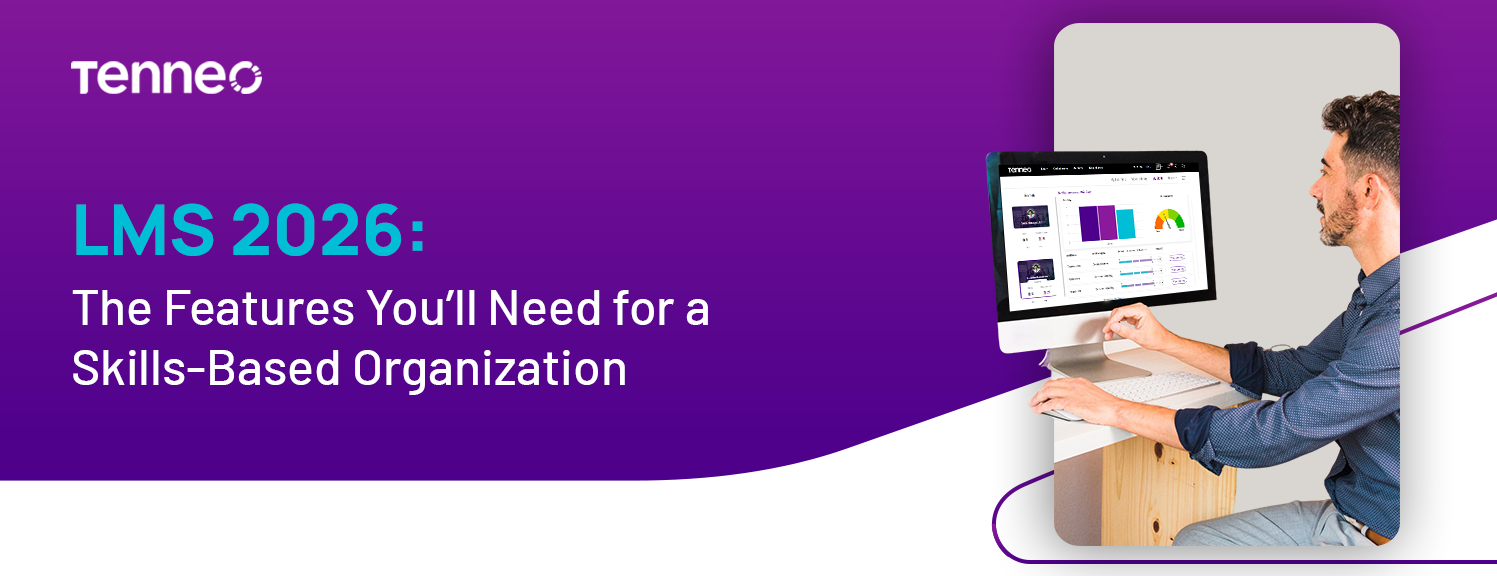
A study reveals that 74% of Millennial and Gen Z employees are likely to leave their jobs within the next year due to a lack of skills development opportunities.
Imagine an LMS that moves beyond compliance and static course catalogs, offering a dynamic dashboard to track employee skill growth, highlight adaptable teams, and reveal the new opportunities your organization is ready to pursue.
By 2026, workplace learning will stand at the center of performance, mobility, and business readiness. The real advantage will come from how quickly employees can develop the skills your organization needs to succeed and grow.
The key question: How will your LMS surface, shape, and accelerate those skills in real time while keeping learning seamless and accessible for all? This article explores the possibilities.
Why LMS Matters More Than Ever in 2026
An LMS in 2026 has its value in how effectively it can:
- Pre-hand prompt and identify emerging skills gaps using real-time analytics.
- Hyper-personalize learning pathways for every employee, from frontline staff to leadership.
- Enable performance readiness, ensuring employees can apply knowledge in critical moments.
- Support organizational agility, helping businesses pivot with industry shifts.
The Shift to Skills-Based Organizations
Most enterprises still anchor learning to roles, compliance, or annual calendars. But as talent strategies shift to skills over titles, LMS platforms must evolve.
In a skills-based organization (SBO), transparent taxonomies, cross-functional mobility, and continuous upskilling take center stage. Employees are recognized for the skills they have and the potential they bring.
By 2026, organizations won’t ask: “What role are you in?” Instead, they’ll ask: “What skills do you have, and how can those skills power the business evolution?” The LMS will be the system that records and enables this transformation.
Eight Key LMS 2026 Features for a Skills-Based Future
- Skills Intelligence Engines
The heartbeat of the future LMS will be skills intelligence. These AI-driven engines will:
- Map organizational skill requirements against market trends.
- Continuously update skill taxonomies as new competencies emerge.
- Seamlessly integrate with performance management to track impact.
Leading LMS platforms will function less like static libraries and more like live radar systems, constantly scanning, updating, and advising organizations on where their skill strengths and blind spots lie.
- Hyper-Personalized Learning Pathways, Powered by AI
Future-ready LMS platforms will use AI and machine learning to create hyper-personalized pathways that adapt learning recommendations to each employee’s current skills, career aspirations, and workplace challenges.
This level of responsiveness ensures learning is not separate from work but intrinsic to it.
- Integration into the Flow of Work
By 2026, learning will no longer sit outside daily workflows. Next-gen LMS design will embed learning into:
- Collaboration tools: Microsoft Teams, Slack, Zoom.
- CRM/ERP systems: so frontline teams can learn inside the systems they use daily.
- Mobile-first experiences: enabling anytime, anywhere upskilling.
Seamlessness is the keyword. The LMS will be an invisible, always-available enabler.
- Data-Driven Performance Linkage
Leaders increasingly expect a direct line between L&D investments and business performance. LMS 2026 will deliver this by providing analytics and enabling predictive insights that connect skills growth to KPIs like sales performance, customer satisfaction, or compliance scores.
- Adaptive Assessments & Skill Verification
Future-ready LMS platforms will rely heavily on adaptive testing and scenario-based simulations. Instead of checking knowledge retention, evaluations will replicate real-world problem-solving.
- Talent Mobility Support
Skills-based organizations thrive on internal mobility. An LMS in 2026 will integrate with talent marketplaces to:
- Highlight internal opportunities aligned with an employee’s skill profile.
- Recommend learning interventions that prepare employees for career shifts.
- Build organizational resilience by reducing dependency on external hiring.
This transforms the LMS into a strategic partner for talent development and retention.
- Immersive & Experiential Learning
Emerging technologies like Virtual Reality (VR), Augmented Reality (AR), and Mixed Reality (MR) will be embedded into LMS platforms, particularly for industries that require experiential learning.
From branch operations training in banking to safety drills in manufacturing, immersive modules will provide practical, risk-free environments for employees to sharpen critical skills.
- Skills Validation through Credentials and Badges
As the world moves toward portable skills currencies, LMS 2026 will support digital credentials, blockchain-enabled badges, and recognition frameworks. Employees will carry their verified skills beyond roles and even organizations, fueling transparency and trust in the broader talent ecosystem.
|
The Business Impact of a Future-Ready LMS |
|
|
Agility |
Faster response to market disruptions with a workforce that can pivot seamlessly. |
|
Resilience |
Reduced skills obsolescence through continuous workforce readiness. |
|
Retention |
Employees remain engaged when they see career pathways supported by learning. |
|
Performance |
Clear linkage of skills to business outcomes fosters executive buy-in and sustainable growth. |
|
Competitiveness |
Employers expect their training investment to give them improved competitiveness. |
Looking Ahead: The Vision for 2026
By 2026, the LMS will evolve into a growth, resilience, and performance system central to building skills-based organizations.
At Tenneo, we help you close skills gaps with an LMS that connects skills, performance, and people to build a truly future-ready workforce. Ready to act now and shape a future-ready workforce? Contact our experts today.


